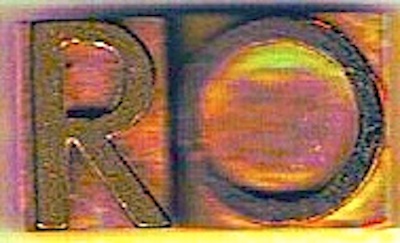
The concept of milestones began back in during the Roman Empire. Milestone is from the Latin, millarium. They were originally stone obelisks make of marble, granite or other stone. They didn't necessarily mark off miles as we know them today, but they did mark off space. Since then, they have become a regular feature of ways to mark length of travel from one point to another (even though now they're little more than metal stakes in the ground). (Milestones). And the point of milestones is that they not only show you where you're going, but they show where you've been.
A milestone is also a term we use to refer to landmarks in our lives to mark where we've been and where we're going, or at least hope to go.
Recently, I've been thinking about milestones and progress in my own life's journey. Sometimes things hum along nicely, or it seems so, and other times it all feels stuck somehow. And sometimes, I don't realize I've felt stuck until an obstruction has been lifted and I'm able to travel along again. The milestones give me a way of gauging whether or not I've made any real progress.
This last month I felt like I'd gotten bogged down somehow and not making any progress. I was getting proofreading and copy editing work, but I hadn't been able to work on any of my fiction and poetry. I would open up files and stare at the stories and have nothing, absolutely nothing, to contribute to them. I felt stuck and frustrated and couldn't figure out how to get unstuck. I'd had a fantastic birthday and was refreshed. And then took a trip to Palm Springs where I had nothing to concern me for several days in a row other than how much time I spent at the pool and how to save the bees that liked to drown themselves in said pool. I brought my novel and short stories to work on, but again I'd open the files and stare and just draw a blank.
My best friend's mom sells Tupperware and one of the things she often says in regards to generating anything is that you can't make soup if you don't stir the pot. It's easy when things are coming in regularly to just accept them and not look any farther for work or inspiration. But even when things are going well, you need to "stir the pot" to see what's out there and draw in energy and ideas for your business and your writing. So, I started poking and prodding myself into action. I queried places where I'd sent work and had not heard back from, looked for work in various new places, renewed my WritersMarket.com subscription, and began hanging out on Duotrope.com more to research possible markets for the works in progress and poetry I'd had sitting on my hard drive for a while.
A funny thing happened. Once I got myself moving, other things got moving, too. I heard back from other work possibilities, and found markets I didn't know were available for my work. I heard back from one place that one story of mine had been accepted and another passed on. I felt energized to look at my old work and see if I could revitalize it, rework it and submit it somewhere else. One place I submitted poetry to didn't want just your average two-three sentence cover letter, they wanted as much as you could tell about mentors, degrees, awards, grants. I scoffed at that, thinking I didn't have anything to offer. Then I started working on that super-duper cover letter and realized I had more in background, had passed by more milestones, then I realized. It made me stop and ponder. It was difficult for me to grasp that I had some major milestones in my own history.
Finally, I received the questions for an interview I'm giving someone and I have yet to finish it. Every time I look at the questions I have to start over answering them, because in the middle of writing I always realize there's more to tell then I'm telling. More going on and more I've experienced than I am giving myself credit for. For years I've just thought of myself as someone who had no experience with all this, and who didn't really know stuff or know what's going on. So, seeing that I did actually have experience made for this huge, "well, huh" moment that I'm still trying to deal with, but is good because it's energizing me to get back to work on all those WIPs that have been sitting around unfinished and submissions I want to get out there.
Last night I was talking to a friend of mine. Listening to her deal with some decisions she has to make I realized I wasn't the only one who doesn't give him- or herself credit for the milestones in their lives. In a lot of ways she was still remembering herself as the student working part-time at a brewery. In the middle of figuring out her life she'd almost lost track of the fact that she was a career professional with lots to offer, and worth more than she gave herself credit for. And we started talking about how it seemed like yesterday when we thought we knew stuff, but didn't really know anything. And now here we were, and we actually know stuff.
When did we become the adults? When did we get past all these milestones to the point where we are the ones in charge? Or as another friend of mine often says, "Who's bright idea was it to make me the mom?"
It reminded me, once again, how important it is to stop and take stock of your life occasionally. And not only look at what you need to work on, but honestly assess how much you've accomplished and be glad of the mileage of your life.


